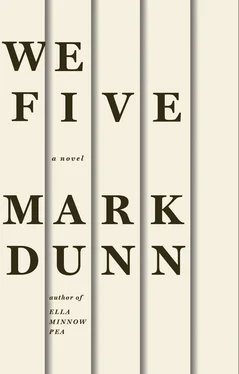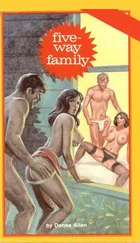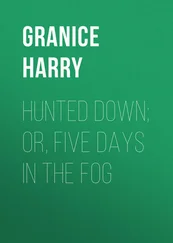“Well, it didn’t stay thrown out. She said she found it in the trash and kept it. Why did you throw it out, Lyle?”
Lyle took a moment to answer. He did so without looking at Carrie. “I stopped believing what they told me about the war. And then I stopped believing I could ever have been a hero. You can’t be a true hero in a war that should never have been fought. And when I stopped believing that , why, I stopped believing in anything.”
Lyle took Carrie by the shoulders and turned her so they’d have to look at one another now. He kept his hands on those shoulders as he spoke. “Listen to me, Carrie. I know what I did was wrong — killing Catts was wrong in ten different ways. I wanted to hurt him for what he did to Jane. No, I didn’t just want to hurt him. I wanted to kill him. You’re right. I’ve killed men before. The army taught us how to do this — how to flip the switch, and then suddenly it’s okay to kill, because you’re in a war and it comes down to either you or the Boche. And even though the war’s been over for five years, it doesn’t look like I’ve lost the knack for flipping that switch when I can find a reason to justify it. That makes me the opposite of a nice person, Carrie, a good person. That makes me a dangerous person. You’re looking at me and seeing somebody who isn’t there. I don’t think he’s ever going to be there.”
“You don’t know that, Lyle.”
“If I ever find the Cross, I’m going to toss it out again. Jane was wrong to hold on to it. Look, it would have been something else if I’d walked in on the two of them — if I’d caught him in the act of hurting her and I struck out at him. But I didn’t. I went looking for him. The same way I hunted down German stragglers in the Argonne and picked them off like field rabbits.”
Through the heating vent came the sound of the tabernacle organ (compromised somewhat by its five missing pipes) playing the anthem “Onward, Christian Soldiers.” The anthem would serve as prelude to the procession of Sister Lydia and her large company of choir members, musicians, and various spiritual adjutants into the auditorium.
“You should go,” said Lyle, taking his hands from Carrie’s shoulders.
“What about us , Lyle?”
“I don’t know about us. I only know that I can’t keep running forever. At least if they decide not to hang me, you can always come visit me in prison.”
Carrie glanced at the open door, but she didn’t make a move for it.
Lyle nudged her gently. “Hurry up. They’re waiting for you.”
Carrie nodded. She leaned in and stood on her tiptoes to kiss Lyle on the cheek. “My love for you, Lyle — it’s very irregular, I know.” She laughed. “But in the words of Miss Colthurst, ‘What is regular in a world that’s spinning off its axis?’”
Sister Lydia had chosen “Roses” as the theme for the first service to be held in her newly constructed (or rather, very nearly constructed) temple. Roses had always played a big part in her ministry. There were many photographs in the rotogravure pages of the country’s Sunday editions of the smiling evangelist, dressed in her simple white muslin “nurse’s uniform,” a dark serge cape draped over her shoulders, stepping from trains while holding large bouquets of long-stemmed roses, which had just been placed in the crook of her arm by local welcoming committees.
The auditorium was filled with roses. They were spread around the stage as if it had been besieged by a hundred wedding-ceremony flower girls dropping petals and stems wherever their little fingers sought to release them.
The dress rehearsal went well. There were only a couple of minor problems, both having to do with lights that did not come on when they were supposed to, as if there were still shorts in the electric circuits that needed to be addressed.
While the orchestra played a piece especially written for the celebration, the ushers took their places at the top and bottom of the three steeply raked aisles and along the walls of the mezzanine and balcony. Each of the twenty-five women wore crimson sashes appropriate for the rose theme of the day. Once they’d found their spots, a dozen male volunteers wearing their best Sunday suits filed in and took seats upon a riser along the upstage wall. These men represented the pastors of Zenith’s various religious denominations, who had promised to attend to show their support for the launch of their colleague’s permanent ministry.
The choir entered next, all twenty women mantled in deep burgundy velveteen robes. Once inside the choir box, each went to kneel before her chair. It was through this expression of reverent genuflection that the choir members acknowledged the arrival of Sister Lydia, who came gusting down the center aisle, her cape flapping behind her. As she mounted the stage and crossed to her podium upon a path of broken roses, the orchestra played “Sweet Hour of Prayer.”
Sister Lydia knelt next to the podium and waited for the orchestra to finish. When she finally stood up, the choir stood up along with her, and under Vivian Colthurst’s direction, they sang a brand-new song in the hymnological canon (written just the year before), but one well suited for Sister Lydia’s purpose:
Jesus, Rose of Sharon, bloom within my heart;
Beauties of Thy truth and holiness impart,
That where’er I go my life may shed abroad
Fragrance of the knowledge of the love of God.
When the song was finished, Sister Lydia addressed the four thousand empty seats in front of her, pretending that each was occupied by someone eager to hear her words of happy salutation. “A warm welcome to each and every one of you here today. May God’s grace live within your heart and His love anoint your abiding spirit.”
Will Holborne had been to see Minerva Quintane twice before. The first trip was made early in his college career when he motored out from Zenith with Jerry and Tom and Pat, each of the four woefully under-versed in the ways of love — even the kind of love that is obtained for a sawbuck (or a shiny Indian Head eagle if one wishes to impress). It was a longstanding rite of passage for the Winnemac Aggie to pay at least one visit to Minerva and her “girls” at some point during his four years at the A&M. Aggies mounted the stairs of Miss Minerva’s storied gingerbread Victorian on the outskirts of town as boys , and, it was said, descended those same stairs fifteen to twenty minutes later as men .
The second time Will went to see Minerva he was alone. She didn’t remember him from the time before (“Far too many of you panting-mouthed puppies for poor Miss Minerva to keep track of”) but got to know him over ersatz Brandy Daisies in her front piano parlor, which was where she preferred to conduct all her interviews — those little booze-lubricated tête-à-têtes that helped the madam pick just the right girl for every taste. Will, as Minerva quickly discovered, liked big-boned, flaxen-haired Swedish farm girls, of which Minerva had at least two in residence. (Strong, big-boned farm girls, Minerva confided, also came in handy around the place on Monday chore days.)
Today, Will Holborne was making his third visit. This time Minerva did remember him. She recalled that he liked girls with an ethnic heritage similar to his own. But today Will didn’t want Katrin or Helfrida. He had a very different type in mind.
“Do you have any girls staying here that maybe don’t seem to have much use for men?”
“Don’t have much use for men?” Minerva clucked like an old hen. “That’s like asking do I keep any dairy cows out in the barn that don’t give milk. What a silly question!”
Читать дальше












